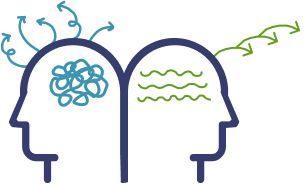GP Info
Why has a GP chosen to focus on ADHD?
Since immersion in the world of ADHD I have come to realise the significance of symptom patterns which I had previously been partially aware, but really not understood.
Untreated ADHD can be extraordinarily debilitating and the effect of treatment can be life changing, by improving self awareness and functionality. With the reduction in the negative impact of having ADHD, the energy, positivity and many positive features associated with having ADHD can be expressed more fully. The effect can be life changing.
In my broader GP practice managing patients with treatment-resistant mood disorders, I note there is a high rate of underlying neurodiversity. This cohort can particularly benefit from a diagnostic assessment for ADHD. Put simply, knowing how to manage ADHD makes me a more effective GP.
ADHD is the most successfully treatable condition in Psychiatry and Neurodiversity.
It seems clear that in a generation, a significant proportion of ADHD will be managed in primary care. If all patients with ADHD are expected to have an annual review in a secondary care clinic, then the proportion of patients in a clinic who are only there for annual review will continue to rise, placing an increasing burden on clinics which are already at capacity. There is a need to train the next generation of GPs to embrace ADHD, to move towards normalising the natural place for the management of uncomplicated ADHD in primary care. This service will provide the foundation on which that later project will be built.
Whilst this may at first sound like yet more specialised work drifting to primary care (which it is) it is also an opportunity to improve the care of current patients who are not being effectively treated due to underdiagnosis.
GP ADHD is the first stage of a project to do something substantial about the startling difference between the high incidence of ADHD in the community and the low capacity of medical services to deal with it.
Stage 1 is Dr Schramm working as a sole practitioner.
Stage 2 will be a multidisciplinary service, The Cambridge ADHD Centre.
Stage 3 will create a way to support GP colleagues who are interested to undertake portfolio work in ADHD to complement their NHS General Practice. From the foundation of the Cambridge ADHD multidisciplinary service I will aim to provide frictionless sessional self-employment for appropriately qualified clinicians. By supporting GPs who work in the NHS I hope to nurture foci of interest and competence in GP practices, to accelerate and normalise the ability to manage uncomplicated ADHD in NHS General Practice. More news on these projects will follow.
If you are a clinician with an interest in ADHD who would like to explore future collaborative working, please make contact via info@gp-adhd.co.uk.
GP ADHD USP
The aim of this service is to assess and treat patients until stable and then offer discharge to GP NHS care.
Of course, we can offer long term direct care for those who choose it.
The medication to treat ADHD is currently expensive and although it adds a lot of value, I believe it is unreasonable to expect patients who have taken the initiative to get themselves diagnosed and treated in the private sector (while waiting lists in the NHS are unworkably long) to be compelled to continue in the private sector long term. For a more detailed analysis of the state of ADHD identification and management in the UK and the health outcomes associated with ADHD I highly recommend this article from the UK Adult ADHD Network, particularly the Background Section.
GP ADHD aims to use the opportunity of discharging every successfully treated patient to spread the word about how effective and satisfying it is to treat ADHD. I also aim to support the NHS GP practices in caring for the patient by offering ongoing opportunity for professional liaison.
Dr Chris Schramm, September 2023

Privacy Policy © GP ADHD 2023 - made by Outcrop Designs
